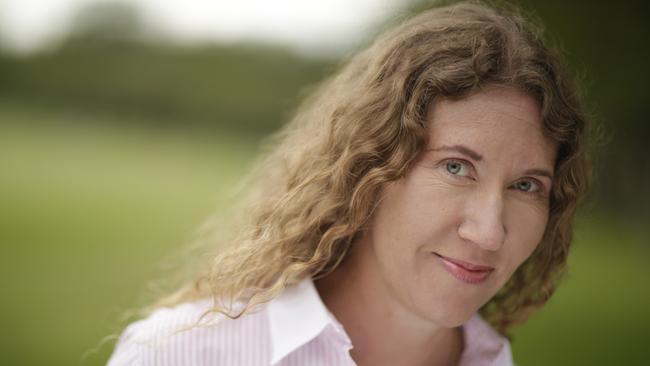Hoaxer who lost control of her hoax
HELEN Demidenko/Darville/Dale makes no apology for unwittingly unleashing a cultural war on Australia’s literary community.

AS Helen Demidenko/Darville, she was at the centre of the biggest hoax in recent literary history. Now, as Helen Dale, a Scottish-based corporate lawyer who speaks with a decided British lilt, she makes no apology for unwittingly unleashing a cultural war on Australia’s literary community that she says was simply not ready for her.
The deception was extraordinary. At a writers festival in 1995, and in countless interviews, Demidenko, who wrote The Hand that Signed the Paper when she was just 20, alluded continually to her Ukrainian heritage.
The falsehoods were nothing if not creative: the author described how her illiterate migrant father, or “Tato’’, who was terrified of flying, had come to see her after she won the The Australian/Vogel Literary Award for an unpublished manuscript. “He’d drunk so much vodka the hosties had to stretcher him on board the plane,” Demidenko said at the time.
The book told the story of two Ukrainian peasants whose family was persecuted under Stalin’s communists. The men — said to be based on the writer’s father and uncle — later joined Nazi death squads during the Holocaust.
But when the glare of publicity turned on Demidenko after she was named the winner of the Miles Franklin Award, the author’s story quickly unravelled as pieces of her past emerged. In fact, she was Helen Darville and her parents were British migrants.
The literary world — she was already under attack, accused of anti-Semitism, an accusation she forcefully denies — went into meltdown. There was little chance of containing the fallout.
Twenty years later, Dale maintains that her challenge to the rigid identity politics of the day was entirely justified. The way she sees it, if she had not assumed a Ukrainian identity, her book would not have been taken seriously and would not have been published.
“I did literature at university in my first degree and I did have it suggested to me in one tutorial that Alan Paton’s Cry the Beloved Country was an illegitimate book about the black experience because it’s written by a white person,’’ Dale says.
“I just remember sitting there thinking: ‘This is nonsense. This is absolute rolled-gold nonsense and it needs to be exposed.’ ” But the little-known backstory of The Hand that Signed the Paper is that of an unnamed, one-time officer of the armed wing of the Nazi party, the Waffen-SS, who when Dale was a teenager was living quietly in the suburbs of Brisbane. Dale, who grew up in Logan, south of Brisbane, came across him as he was clipping a hedge. He had a Waffen-SS tattoo in his armpit, and Dale questioned him about it.
She learned his story and used it for her book but never revealed the man’s identity. It was the era of World War II war crimes trials on home soil, most notably the prosecution of Ivan Polyukhovich, accused of murdering 24 Jews in Ukraine, and Dale feared retribution for exposing him. She thought perhaps he might die, then she could reveal the man’s story. But he didn’t, she passed the story off as her own, then she won the Miles Franklin and found herself in the position of having to maintain the deception on a very public stage.
“It was very, very awkward at the time and very upsetting,” Dale says now. “I have zero acting talent. It was a case of screwing up my courage.
“But I actually think in the long term it may have been useful. People need to understand that writers write under pseudonyms, that writers imagine themselves into other people’s perspectives; that it is better to have a great literature rather than a representative one because culture is not a democracy.
“I think people have come to realise that. I suppose at the time some people weren’t ready for it.”
Dale says she believes she has found her true vocation in the law. “Probably I should have been a lawyer from the beginning,” she says. “I have a picky, detail-minded personality.”
She lives alone in an 18th-century apartment, a former tenement close to the centre of Edinburgh, in a suburb “full of accountants and lawyers”, and maintains an active interest in politics and current affairs, describing herself as a modern sceptic, an economic conservative and a social liberal. She is a strong supporter of gay marriage and has written award-winning essays in Britain on the topic.
Were her actions in assuming a Ukrainian identity and maintaining the public deception justified? She is reluctant to draw a conclusion. “If ‘if’ and ‘ands’ were pots and pans, there’d been no need for ironmongers,” she quips. “Or my father’s variation: if ‘ifs’ and ‘ands’ were pots and pans we’d all be millionaires.”



